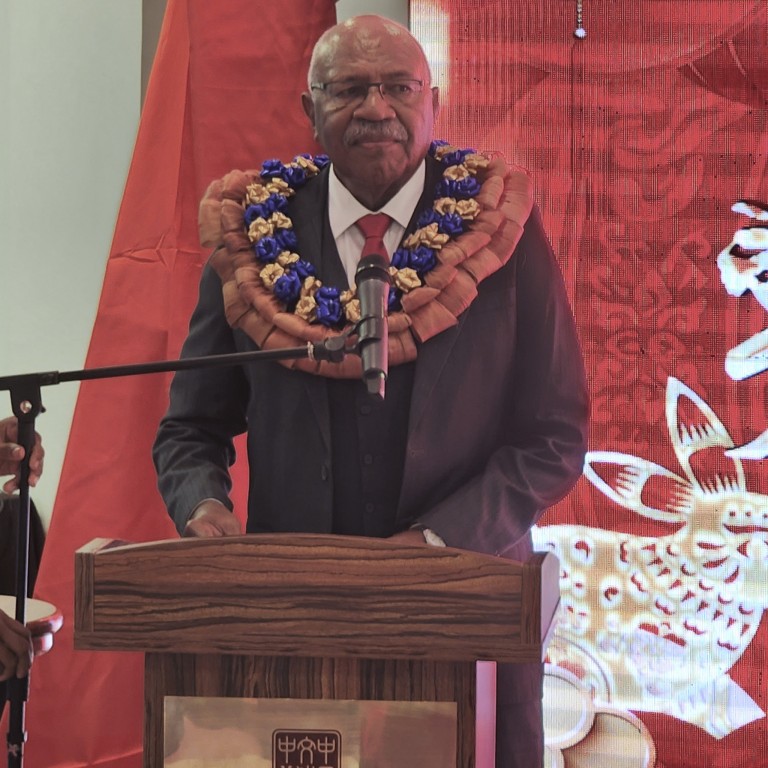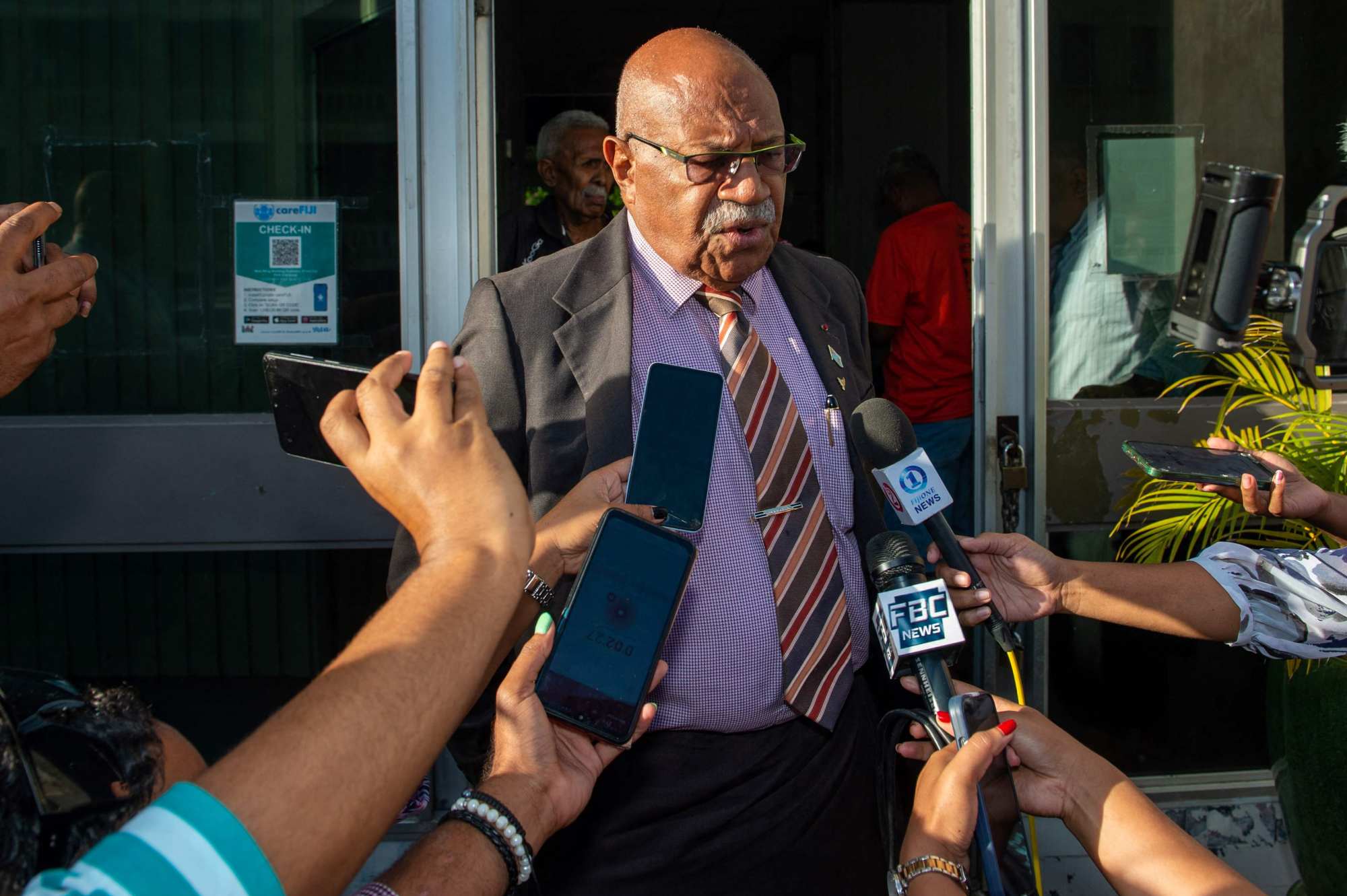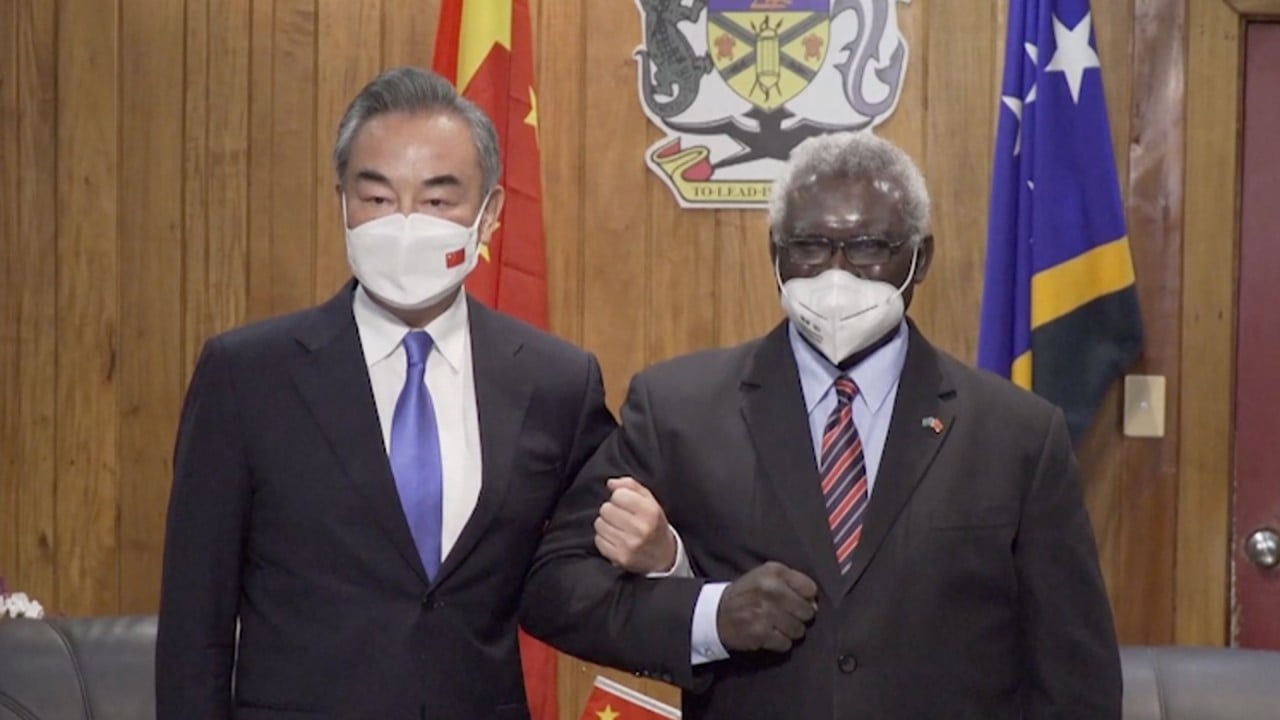
Fiji pivoting back to ‘well-established’ partners Australia and New Zealand by axing China security deal
- PM Sitiveni Rabuka said Chinese state security personnel would no longer continue working with its police force due to their ‘different systems’
- But officers from Australia and New Zealand could remain in the country because their systems were similar to Fiji’s, the PM told a local paper
Fiji’s cancellation of its police training and exchange agreement with China is an attempt by the country’s new leadership to revamp its public services and overturn previous administration decisions, analysts said.
“Our system of democracy and justice systems are different so we will go back to those that have similar systems with us,” Rabuka had told The Fiji Times, adding that officers from countries such as Australia and New Zealand would stay because their systems were similar to Fiji’s.
Rabuka took office on December 24 after a coalition of parties narrowly voted to install him as leader.
Australia pushes for PNG security pact to counter China’s Pacific influence
Under the 2011 agreement, Fijian officers received training in China while Chinese officers were stationed in Fiji on three to six-month deployments. The MOU was signed by Rabuka’s predecessor Frank Bainimarama who served as prime minister from 2007 to 2022.
Late last month, Rabuka also suspended the country’s police commissioner Brigadier-General Sitiveni Qiliho and head of prison services Francis Kean.
“It seems as if Rabuka is remaking public service leadership, and action on the police was part of that remake,” said Alan Tidwell, director of the Center for Australian, New Zealand and Pacific Studies at Georgetown University in Washington.
Hideyuki Shiozawa, a senior programme officer at the Sasakawa Peace Foundation’s Pacific Island nations programme, said the MOU was signed during Bainimarama’s administration after the leader seized power in a coup in 2006.
Rabuka appears to be trying to undo an unnatural situation for Fiji
Tensions between Fiji and its developed neighbours were most severe from 2009 to 2012, he noted, and it was during this period in which relations with China rapidly deepened and the MOU was signed so that Fiji could be on “equal footing with Australia and New Zealand”.
“Rabuka appears to be trying to undo an unnatural situation for Fiji,” Shiozawa said, adding that by terminating the MOU, Fiji could restrengthen its ties with Australia and New Zealand.

Meg Keen, director of the Pacific Islands Program at the Australian-based Lowy Institute, said Fiji was concentrating partnerships in areas where there were “greatest returns and compatibility”.
“For security responses working with well-established security partners makes sense,” Keen said, adding that Fiji had worked closely with Australia and New Zealand on security issues for decades.
In recent months, Australian foreign minister Penny Wong has stated on various occasions that her country hopes to be a “security partner of choice” for countries in the region.
Setback for China in the region?
The following month, Beijing tried unsuccessfully to have 10 Pacific nations sign a sweeping deal covering everything from security to fisheries.
Australia eyes more sea mines for maritime defence amid China’s sway in Pacific
Tidwell said China’s regional push had met several setbacks; apart from Fiji’s termination of the MOU, Papua New Guinea (PNG) and Australia are also in the process of concluding a security agreement.
However, given the desire of Pacific nations to be “friends to all”, Keen said these countries would continue to collaborate with a range of development partners, including China which will “play to its strengths” especially in infrastructure and loans to support economic development.
“To be influential in the region, China does not need to be engaged in police training,” Keen said, adding that while Beijing was likely to respect Fiji’s decision, it would not diminish its commitment to the region.


